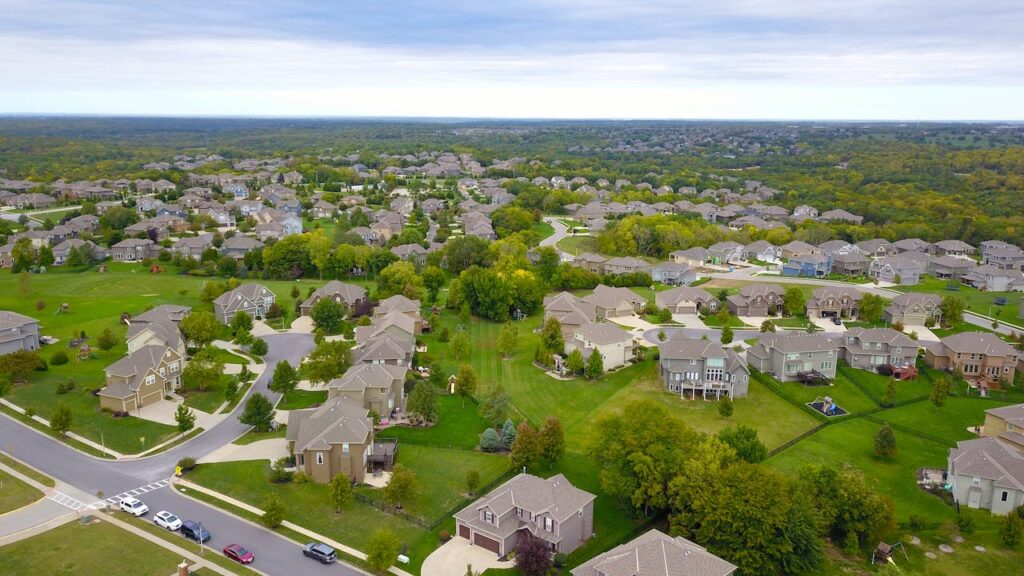A Complete Guide to Finding No Tax Return Lenders
What is a No Tax Return Mortgage?
There are various ways to qualify for a loan that don’t include showing tax returns or income. A no tax return mortgage – also sometimes incorrectly referred to as a “no-income-verification mortgage” – is a mortgage where the borrower isn’t required to show the documentation that standard loans typically require like pay stubs, W2s or tax returns for loan qualification.
Keep in mind that anyone who does incorrectly refer to no tax return mortgages as “no-income-verification mortgages” are NOT saying that ZERO documents are needed, or verification/proof isn’t necessary. Instead, they are saying that they use alternatives to verify income but not traditional income verification like tax returns, W2s etc. For this reason the lenders who do use this term might also refer to them as low-documentation mortgages.
Lenders who offer loan options without the need to show tax returns and traditional income verification understand that the documented income on your tax returns and W2 might not tell your whole story. Perhaps you are a business owner who claims write-offs on your tax returns, maybe you are an independent contractor who has a 1099 and who has an income that varies based on commission.
Whatever the reason, these lenders who offer no tax return mortgages recognize that the amount of money that you’re bringing in each month can be more telling than what’s stated on your taxes. As a result, these lenders are instead asking to see alternative income verification documents, like bank statements, profit & loss statements, or proof of rental income, depending on the loan type. These lenders are the lenders like us at Defy – but we don’t call them no tax return mortgages or no-income-verification mortgages.
A no tax return mortgage gives flexibility for people who have an irregular, non-traditional income, or include business write-offs on their tax returns such as:
- Self-employed individuals
- Freelancers
- Business owners
- Real estate investors
- Entrepreneurs
- Retirees
- High-net worth individuals
- Independent contractors/1099/Hourly wage earners
No tax return mortgages make home financing more accessible for people who come from diverse employment and financial backgrounds – providing a path to homeownership that might have felt unlikely for some qualified borrowers. Some loan options that don’t require traditional income documentation like tax returns and W2s are bank statement loans, profit & loss statements, asset depletion options, DSCR loans, and construction loans — all of which we offer at Defy.
History of No Tax Return Mortgages in the United States
Looking back on the history of no tax return mortgages, they’re a relatively new concept as the mortgage industry evolved. With the gig economy and self-employment on the rise, lenders recognized the need for alternative income verification. Transcending the status quo that binds homeownership to the narrow confines of “taxable income”, the creation of the no tax return mortgage allowed a wider spectrum of borrowers to have access to home financing without the strict requirement of traditional income documentation like tax returns, W2s or paystubs.
Today, no tax return mortgages are considered to be non-QM loans, which simply means they are loans that do not conform to the lending criteria set by the Consumer Financial Protection Bureau (CFPB). This means that non-QM loans allow lenders to be more flexible with their standards and requirements for borrowers.
There can be several reasons that borrowers might not meet the “traditional” or qualified mortgage (QM) criteria, from not having consistent or traditional income, to having a higher debt-to-income ratio, not being able to show proof of income or accurate proof of income, etc.
Where Can I Find a No Tax Return Mortgage?
Since no tax return mortgages are considered non-QM loans, the best way to find them is through non-bank and private lenders, like Defy. Lenders that offer non-QM loans understand that not every borrower fits the conventional mold. Each borrower’s circumstances are unique, which is why there are several types of no tax return mortgages / loans that don’t require tax returns, available to suit a wide variety of needs.
What Documents Do You Need For a No Tax Return Mortgage?
The documents that are required for a no tax return mortgage will depend on the specific type of loan and the lender that offers them. While we can’t speak for other lenders, here’s an idea of what we would require for each no tax return mortgage type at Defy:
Bank Statement Loans
- 12-24 months of bank statements
- Credit score (FICO) of 620+
Profit & Loss (P&L) Statement Loans
- Business profit & loss statements
- Proof that the borrower has been self-employed or the business has been in existence for at least 2 years
- Credit score (FICO) of 600+ (with a reduced LTV)
Asset Depletion Options
- Liquid asset documentation
- Credit score (FICO) of 620+
DSCR Loans
- Proof of rental income
- DSCR ratio of 0.75+
- 3 months cash reserve
- Credit score (FICO) of 620+
Fix & Flip/Construction Loans
- Proof of historical experience
- Construction plans and budget
- Proof of reserves
- Credit score (FICO) of 620+
Who Can Qualify for a Mortgage with No Tax Returns?
Those who don’t have a traditional source of income are ideal candidates for no tax return mortgages. This can include self-employed individuals, freelancers, entrepreneurs, business owners, retirees, and more. Take a look at some of the benefits of no tax return mortgages and pros and cons below to see what resonates with you.
Two of the main benefits of no tax return mortgages are: the flexibility they offer to individuals with non-traditional employment by having alternative ways to verify an applicant’s income, and the simplified application process, which can save time and paperwork for borrowers who have difficulty providing traditional income documentation.
Depending on the specific type of no tax return mortgage type and the lender, eligibility criteria may vary. In the previous section above, we’ve outlined some of the alternative income documents we accept at Defy for each loan type.
Are No Tax Return Mortgages Safe?
Yes! No tax return mortgages are safe. Even though they don’t require any tax returns or W2s to qualify, lenders still do their due diligence by evaluating each borrower’s ability to repay using other documents. Just because these loans don’t need tax returns, W2s and/or paystubs, doesn’t mean that lenders don’t evaluate borrowers’ income at all. They still evaluate it, just in a different way with alternative methods. Think of it as evolution of the lending space.
No Tax Return Mortgages vs Conventional and FHA Loans
The main differences between no tax return mortgages and conventional and FHA loans are the way income is verified and eligibility criteria that’s used for the approval process. As the name suggests, no tax return mortgages don’t require traditional tax returns, W2s and paystubs. Whereas conventional and FHA loans need tax returns, along with pay stubs and W2s as proof of income. No tax return mortgages also tend to have less strict eligibility criteria when it comes to employment history in comparison to conventional and FHA loans.
Conventional and FHA loans can be great options for those who have traditional jobs and can show a stable work history, though they typically have more paperwork that’s required. For those who don’t fit that traditional mold, no tax return mortgages are a valuable tool for an alternative path to homeownership since not as much documentation is needed.
Pros of No Tax Return Mortgages
- Good for those who have business-write offs on tax returns
- Wider variety of loan types to suit borrowers’ needs
- Less strict credit requirements
- Flexible underwriting standards
- Accept other forms of income verification (E.g. bank statements, profit & loss statements, etc)
- Lenders who specialize in non-QM loans are experts in no tax return mortgages
- Larger loan possibilities due to looser debt-to-come requirements
Cons of No Tax Return Mortgages
- Down payment requirements can be higher
- Limited lender options
Loan Options That Are Not No Tax Return Mortgages
There are many more loan options than the ones listed below that are not no tax return mortgages, but in the interest of time and length, we’ve chosen to name some of more recognizable.
- Conforming: A mortgage type that meets the lending standards set by Fannie Mae and Freddie Mac, including conforming to specific loan limits and underwriting guidelines.
- VA: A mortgage type that’s available for eligible veterans, active-duty military members, and their spouses, guaranteed by the US Department of Veterans Affairs, offering favorable terms and often requiring no down payment.
- FHA: A mortgage type that’s government-backed and insured by the Federal Housing Administration (FHA). FHA loans were created to help borrowers with lower credit scores or low down payment capacities.
- Jumbo: A mortgage type that exceeds the conventional loan limits set by Fannie Mae and Freddie Mac. Jumbo loans can be used for high-value properties, but usually need higher down payments and higher credit scores.
- USDA: A mortgage type that’s backed by the US Department of Agriculture. This program caters to rural homebuyers by offering them low to no down payment options and competitive interest rates.
How To Find A Lender Who Offers No Tax Return Mortgages
If you think a no tax return mortgage is a good fit for you or might be, the next step would be to start looking for a lender. During your lender search, take the following into consideration:
- Experience: Does the lender have a lot of experience handling no tax return mortgages? How about non-QM loans? If there’s a specific loan type that you’re considering, do they have experience with that specific loan type as well?
- Reputation: Check out places like their website, Trustpilot reviews and Google. When looking up online reviews of the lender, do other borrowers tend to have a positive experience or a negative experience with them?
- Customer service: Do any of the reviews mention the quality of the lender’s customer service? Will you have someone – ideally a specialist or mortgage consultant – that you can speak with throughout the entirety of the process?
- Non-bank lender: Is the lender a large bank or a non-bank lender? Larger banks have stricter guidelines when it comes to loan options which can cause roadbumps. Should you go to a bank and not accurately show income on your tax returns, or not be able to show then at all, you could be turned down because of this, causing confusion, frustration and missed opportunity.
Overall, non-bank lenders or “private lenders” are a good choice for people interested in no tax return mortgage because of their quicker approval times and more flexible underwriting guidelines. Non-bank lenders, like us at Defy, have more specialized loan products, which means they’re far more experienced with handling loans for thos who don’t find the traditional mold.
FAQs
What is a No Tax Return Mortgage?
A no tax return mortgage is a type of home loan that doesn’t require borrowers to submit tax returns, W2s or paystubs as part of the application process. Instead, lenders use other alternative methods to verify income like bank statements, profit & loss statements, or proof of rental income, depending on the loan type.
Keep in mind that some lenders, but not all, will also call no tax return mortgages a “no-income-verifaction mortgage.” Likewise, some lenders might not use the term “no tax return mortgage” at all. Instead, that might say that they have “loan options that don’t require tax returns.” Make sure you ask your lender for product specifics upon inquiring.
Can Retirees Get No Tax Return Mortgages?
Yes! Retirees may qualify for no tax return mortgages by demonstrating their income from alternative sources, such as pension or investment statements.
Who Typically Uses No Tax Return Mortgages?
Self-employed individuals and those who may have difficulty documenting their earnings through conventional means, like freelancers or small business owners, typically use no tax return mortgages. Same can be said for retirees who currently don’t have a place of employment, and high-net worth individuals who have substantial liquid assets.
Who Offers No Tax Return Mortgages?
Defy offers lending options that don’t require tax returns such as DSCR loans, bank statement loans, P&L loans, fix & flip loans, and construction loans. Contact us today to learn more.
What Types of Properties are Eligible for No Tax Return Mortgages?
No tax return mortgages can be used for various property types, including primary residences, second homes, and investment properties.
What are the Benefits of a No Tax Return Mortgage?
The main benefit is the simplified application process, which can save time and paperwork for borrowers who have difficulty providing traditional income documentation. It can also be advantageous for those with irregular income streams such as self-employed individuals, freelancers, and small business owners as they have more flexible qualification criteria and accommodate those in unique circumstances.
Can People with Bad Credit Get a No Tax Return Mortgage?
Since no tax return mortgages have reduced income verification, lenders typically need a minimum credit score of 620. To reduce the lender’s risk, credit scores are an important part of the approval process for a no tax return mortgage because they show the lender that you have a proven track record of managing your debt well. Keep in mind that credit score requirements vary by lender.
What Are the No Tax Return Mortgage Requirements?
The requirements for a no tax return mortgage will vary by the loan type and lender. Generally, the requirements will include alternative proof of income depending on the type of loan it is. For example, a bank statement loan will require several months worth of bank statements which equates to anywhere from 12-24 months. Be sure to ask your lender what these are when you speak to them.
What Are the Downsides of a No Tax Return Mortgage?
No tax return mortgages may include higher interest rates and down payments, but not always. Again, this depends on the lender.
How Do Lenders Determine Eligibility for a No Tax Return Mortgage?
Lenders may consider factors such as credit score, employment history, assets, and the borrower’s down payment amount to determine eligibility for a no tax return mortgage – among potential other factors of the lender’s choice such as DTI, rental income, etc.
Can I Refinance a No Tax Return Mortgage?
Yes, borrowers with existing no tax return mortgages can refinance their mortgage for cash-out, depending on their creditworthiness and the current lending environment.
Do I Need to Provide Tax Returns for an FHA Loan?
Yes, tax returns as well as W2s and paystubs are required to be eligible for an FHA loan.









